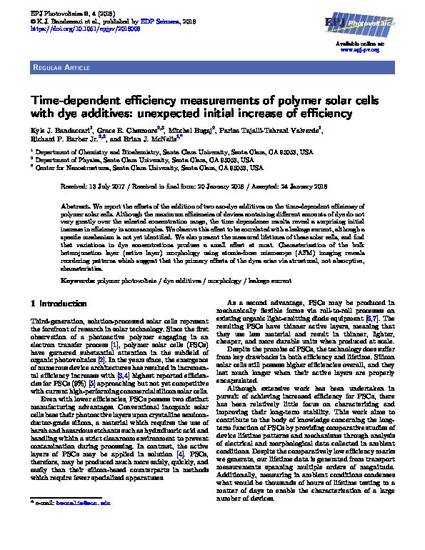
We report the effects of the addition of two azo-dye additives on the time-dependent efficiency of polymer solar cells. Although the maximum efficiencies of devices containing different amounts of dye do not vary greatly over the selected concentration range, the time dependence results reveal a surprising initial increase in efficiency in some samples. We observe this effect to be correlated with a leakage current, although a specific mechanism is not yet identified. We also present the measured lifetimes of these solar cells, and find that variations in dye concentrations produce a small effect at most. Characterization of the bulk heterojunction layer (active layer) morphology using atomic-force microscope (AFM) imaging reveals reordering patterns which suggest that the primary effects of the dyes arise via structural, not absorptive, characteristics.

This is an Open Access article distributed under the terms of the Creative Commons Attribution License (http://creativecommons.org/licenses/by/4.0), which permits unrestricted use, distribution, and reproduction in any medium, provided the original work is properly cited.